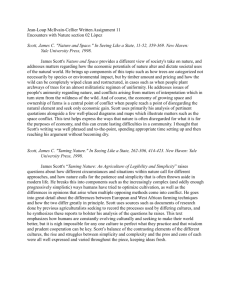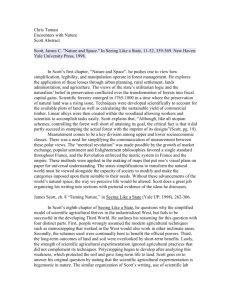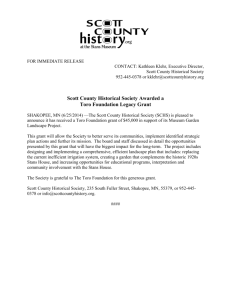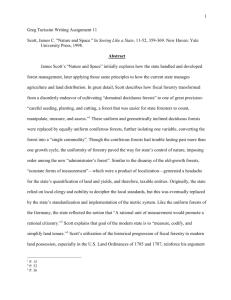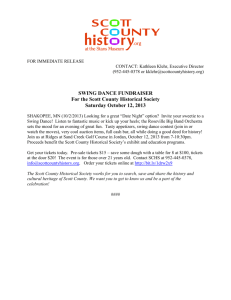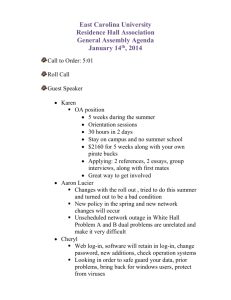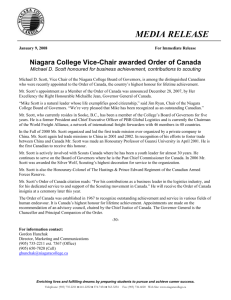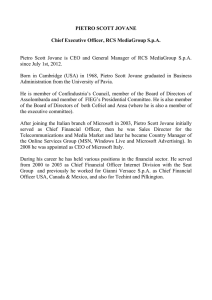Aline Kim
advertisement
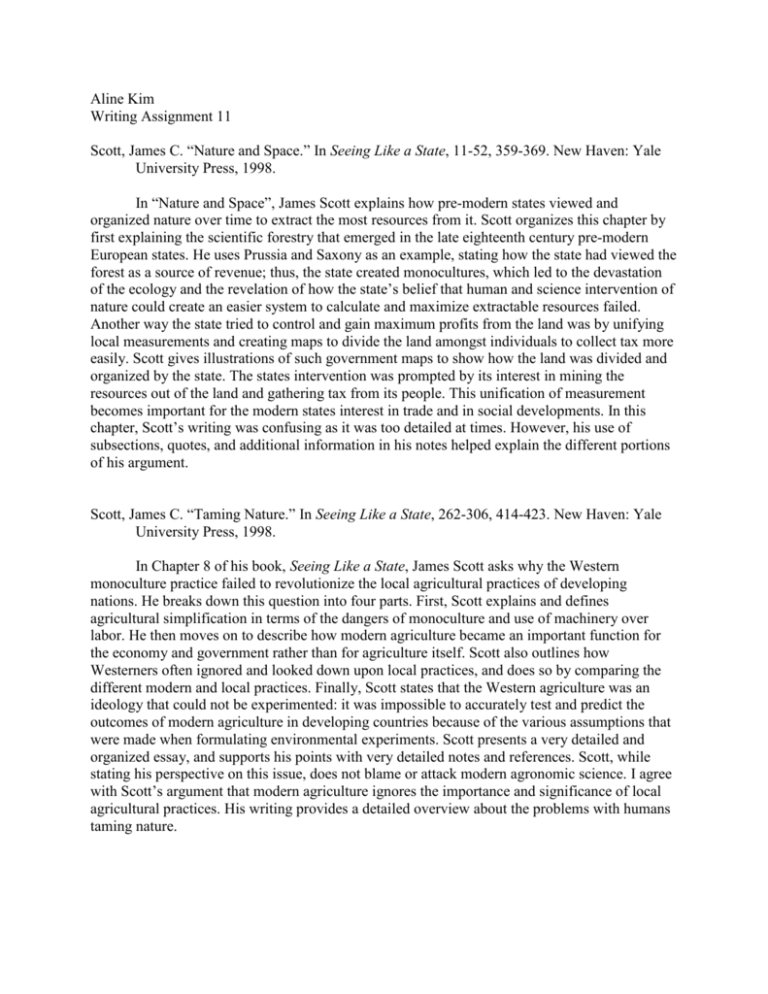
Aline Kim Writing Assignment 11 Scott, James C. “Nature and Space.” In Seeing Like a State, 11-52, 359-369. New Haven: Yale University Press, 1998. In “Nature and Space”, James Scott explains how pre-modern states viewed and organized nature over time to extract the most resources from it. Scott organizes this chapter by first explaining the scientific forestry that emerged in the late eighteenth century pre-modern European states. He uses Prussia and Saxony as an example, stating how the state had viewed the forest as a source of revenue; thus, the state created monocultures, which led to the devastation of the ecology and the revelation of how the state’s belief that human and science intervention of nature could create an easier system to calculate and maximize extractable resources failed. Another way the state tried to control and gain maximum profits from the land was by unifying local measurements and creating maps to divide the land amongst individuals to collect tax more easily. Scott gives illustrations of such government maps to show how the land was divided and organized by the state. The states intervention was prompted by its interest in mining the resources out of the land and gathering tax from its people. This unification of measurement becomes important for the modern states interest in trade and in social developments. In this chapter, Scott’s writing was confusing as it was too detailed at times. However, his use of subsections, quotes, and additional information in his notes helped explain the different portions of his argument. Scott, James C. “Taming Nature.” In Seeing Like a State, 262-306, 414-423. New Haven: Yale University Press, 1998. In Chapter 8 of his book, Seeing Like a State, James Scott asks why the Western monoculture practice failed to revolutionize the local agricultural practices of developing nations. He breaks down this question into four parts. First, Scott explains and defines agricultural simplification in terms of the dangers of monoculture and use of machinery over labor. He then moves on to describe how modern agriculture became an important function for the economy and government rather than for agriculture itself. Scott also outlines how Westerners often ignored and looked down upon local practices, and does so by comparing the different modern and local practices. Finally, Scott states that the Western agriculture was an ideology that could not be experimented: it was impossible to accurately test and predict the outcomes of modern agriculture in developing countries because of the various assumptions that were made when formulating environmental experiments. Scott presents a very detailed and organized essay, and supports his points with very detailed notes and references. Scott, while stating his perspective on this issue, does not blame or attack modern agronomic science. I agree with Scott’s argument that modern agriculture ignores the importance and significance of local agricultural practices. His writing provides a detailed overview about the problems with humans taming nature.
